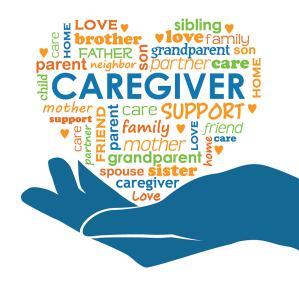
Individuals who have been caring for disabled loved ones have faced additional burdens. Due to the risks of infection, the pandemic has created an unprecedented degree of isolation for caregivers, those that have been hospitalized or are in nursing homes and the family members who cannot visit them. Caregivers have been grappling with decisions such as dealing with a doctor’s visit when their loved one gets sick and weighing the risks of getting in-home help.
Caregiving requires every tool at hand to manage all that it throws at you, and here are some resources to help.
Technology that can help:
Since COVID has increased our reliance on technology, you might find the following article of interest, as it compiles a list of some of the most impressive and helpful apps for managing a loved one’s care: Read article…
How to Conquer 3 Challenges Every Caregiver Faces:
Being a caregiver requires endless amounts of energy, empathy and patience. During this unprecedented year, even if you are not a caregiver, some or all of the challenges below may resonate with you as well.
Caregiving is a time-consuming undertaking that can easily lead to burnout. Remember that taking care of others means taking care of yourself. Be good to yourself.
Here are three common challenges faced by today’s caregivers, along with ideas for conquering them:
Isolation: For caregivers, the feeling of being cut off from the outside world has increased. So much time and energy is spent caring for someone else, and caregivers often don’t have time to take care of themselves. If you start to feel isolated, reach out to close friends and family to see if they are able to help. Even the perception of the availability of support is important to one’s well-being. Consider a ZOOM support group for caregivers dealing with similar problems. It’s important for your own health that you still have “time for you,” and it can help you be a better caregiver as well.
Stress: Taking care of a loved one and being responsible for their health can be very stressful. There are a lot of tasks to juggle, from managing medications to helping with getting dressed or bathing. If you’re feeling stressed, try to set aside little breaks throughout the day. Even 5-10 minutes every couple hours where you can practice relaxation techniques like meditation or breathing exercises can help relieve some of your stress. Tackling too many things at once can be overwhelming. Most tasks are not urgent. Remember, one moment at a time.
Financial burden: The financial burden felt by caregivers should not be overlooked. Often if you are taking care of a loved one, you may be foregoing career or educational opportunities, which means you may be limiting your income. You also may worry about what the future will bring financially. If you’re experiencing a financial burden as a caregiver, reach out to family and friends to see if they would be willing to help with your caregiving duties. You should also see if your loved one qualifies for disability income. With respect to long term care planning, it is important to reach out to an elder law attorney so that you can be assured that you are receiving the guidance you need.
Being aware of common issues caregivers face can help you be on the lookout for signs you are experiencing them as well. If you recognize early on that you are feeling isolated, stressed, or financially burdened, take action to get help. It’s easy for caregivers to overlook their own wellbeing, but taking care of yourself will not only help you, it can help the one you care for as well.